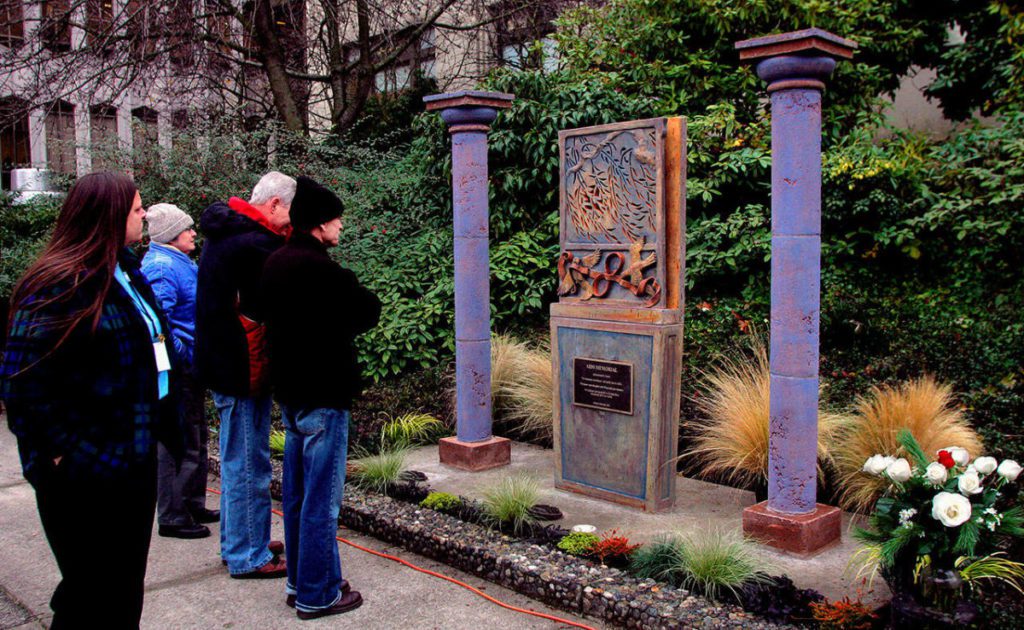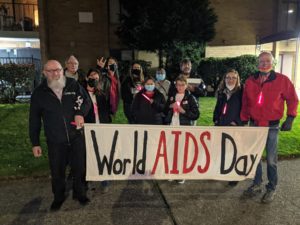
A crowd of about 50 people attended the dedication ceremony for the AIDS Memorial of Snohomish County in December 2005 (Michael O’Leary / Herald file)
Organizations, communities, and individuals around the world observe World AIDS Day with events and activities on and around December 1 to honor all we have lost from AIDS and the millions who are living with HIV and AIDS around the world, and to raise awareness of this issue.

APSC + Lifelong World AIDS Day celebration on Dec. 1, 2021
In a difficult couple of years dominated by the COVID-19 pandemic, we see yet again how deadly diseases including HIV/AIDS and COVID-19 reveal persistent inequities across the United States and around the world. And yet again we know that we cannot win the fight against either disease without addressing gaps in access to health care and lifesaving treatment, as well as the often deadly impacts of stigma and systemic injustice.
In the U.S., Black and Latino communities bear the brunt of both HIV and COVID-19. In 2018 Black Americans accounted for 13% of the U.S. population, but 42% of new HIV diagnoses, and Latinos accounted for about one in four new HIV diagnoses. Looking at Black communities in the U.S., an amfAR study revealed how disproportionately Black counties in the U.S. are bearing the brunt of the COVID-19 pandemic.
This Year’s World AIDS Day Theme
[From hiv.gov]
In 2023, the theme for World AIDS Day was “World AIDS Day 35: Remember and Commit.” This annual event serves as a reminder of the global struggle to end HIV-related stigma, an opportunity to honor those we have lost, and a rallying cry to committing to working toward a day when HIV is no longer a public health threat.
Keep an eye on this page for more information as we approach this year’s World AIDS Day!